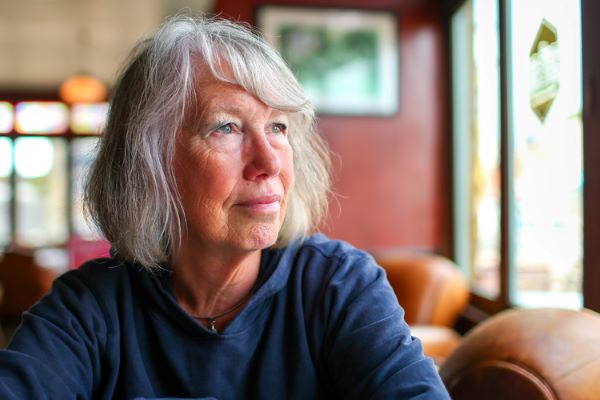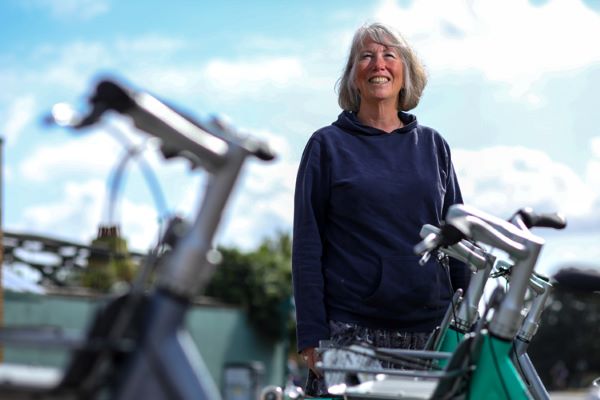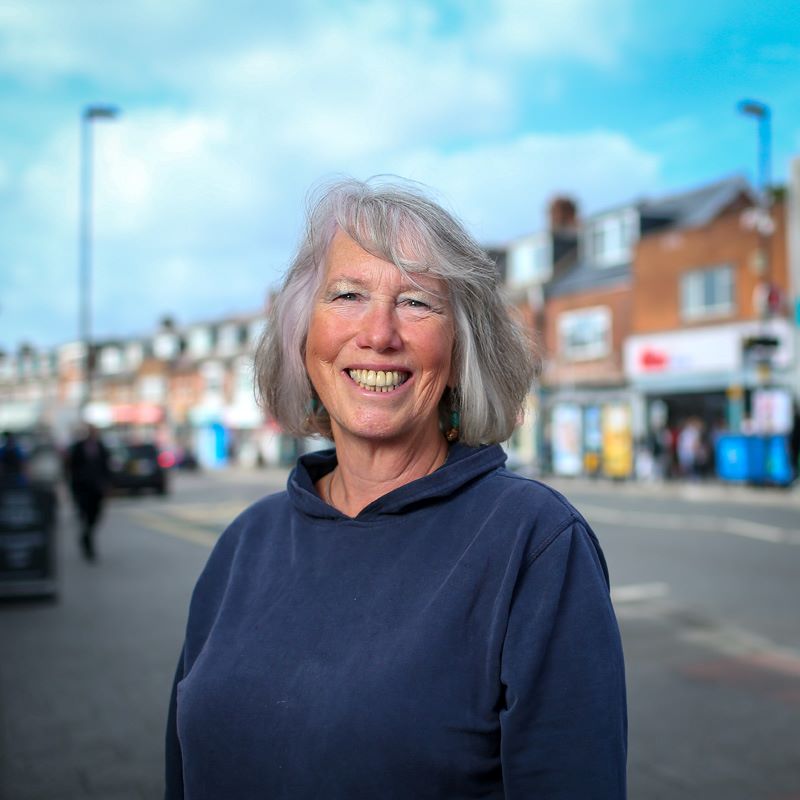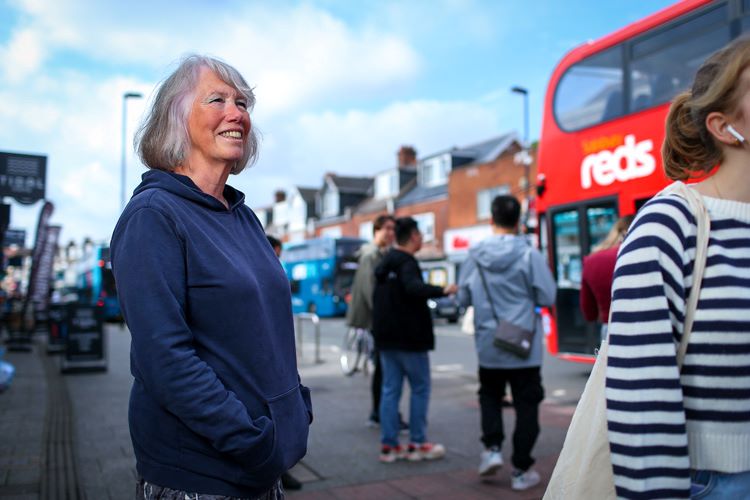Five months after Katherine Barbour was elected as Southampton’s first Green councillor, Chris Moorhouse asks how it’s going.
Her smile at being elected in the early hours of the morning of May 6th was an abiding image of this year’s local election count. She became Southampton’s first ever Green councillor. Along with two Labour councillors, Katherine represents the Portswood ward.
Winning her seat delighted her and came as something of “a surprise”, despite “years of campaigning.” But where did Barbour’s ideas about Green politics start? She grew up in Wimbledon in southwest London, in a “fairly intellectual Labour supporting family.” I tease her that maybe all that Wombling was itself Green. She likes it. Ideas about ‘social justice’ always featured heavily in her family. She had a family of her own in her mid twenties (she’s 64) and moved to Southampton thirteen years ago. She was a social worker and then led the discharge team at Southampton General. Today she teaches yoga. There was no Damascene conversion to Green thinking. She simply began to think of her children’s and grandchildren’s futures, and gradually Green ideas just seemed to make sense to her. Five months on from election day and sitting in a Portswood café over coffee, I ask her how it is going.
 As one of fifty one city councillors, and the sole Green and a newbie, she is learning the job. Barbour’s made sure to meet leaders of the other parties. And she has recently spoken three times in the council chamber. In the more medium term, she’s interested in air quality and our health, the development of Portswood Broadway, issues with e-scooters, provision of cycling facilities, and recycling. Also anti-social behaviour, which she knows is a blight on the lives of many of the city’s residents. All standard fare, and I say some of it surely for central government, not local. She says both. Where she feels frustrated is in what she describes as the council’s sometimes “scatter gun approach” to important issues.
As one of fifty one city councillors, and the sole Green and a newbie, she is learning the job. Barbour’s made sure to meet leaders of the other parties. And she has recently spoken three times in the council chamber. In the more medium term, she’s interested in air quality and our health, the development of Portswood Broadway, issues with e-scooters, provision of cycling facilities, and recycling. Also anti-social behaviour, which she knows is a blight on the lives of many of the city’s residents. All standard fare, and I say some of it surely for central government, not local. She says both. Where she feels frustrated is in what she describes as the council’s sometimes “scatter gun approach” to important issues.
Take the example she gives of a landlord who wants to pave over their front garden. Permission is given. Then a little later, they apply to extend their property to create additional living space. The council grants permission again. So not once but twice, land is lost for rainwater to run off, with the knock-on effects that we are all too familiar with. There’s a disconnect, she says, between economic development and the environment. Nor is she happy with a fairly recently approved plan for trees to be felled at the Sports Centre and a car park to be built on a cricket pitch. Again, where will the rainwater go?

Ultimately, longer-term success will come from the election of further Green councillors which will allow the Greens to serve on council committees, where the real power lies. The first opportunity will be May 2024, when the Greens will put up candidates in Portswood and elsewhere. The party has about 250 members in the city and there are regular monthly meetings. Barbour always provides a report of what she is up to. She wants the party to form part of a ruling coalition. She cites successes in Green-led Norwich, and the part Green councillors play in Kent, Brighton and Bristol. After her “breakthrough”, she thinks it could take ten years here.
We talk about our lack of engagement with politics, about how you reach people. Could our governmental models just be broken? I ask about the appeal of Extinction Rebellion and Just Stop Oil to millennials. Are the actions of MPs and local councillors, Green or otherwise, even relevant to them? Last week she watched a programme about Just Stop Oil and was “very heartened by the young people she saw there who were really putting their money where their mouths are.” She thinks that in future, this kind of campaigning will be “more the way that people try to express their feelings and frustrations about what is happening in our society.” This seems characteristic of her Green thinking in general, where it’s all about “coming together with like-minded people” over specific issues and “actually doing some action.”
It seems a good moment to head outside into the daylight, to take some more photographs.
- In Common is not for profit. We rely on donations from readers to keep the site running. Could you help to support us for as little as 25p a week? Please help us to carry on offering independent grass roots media. Visit: https://www.patreon.com/incommonsoton
You may also like:
Improvement works to Sholing Station to make it easier to access start in October
Southampton’s only specifically designed accessible allotment opens
Out of the Darkness: Greenham Voices 1981 – 2000, October Books


